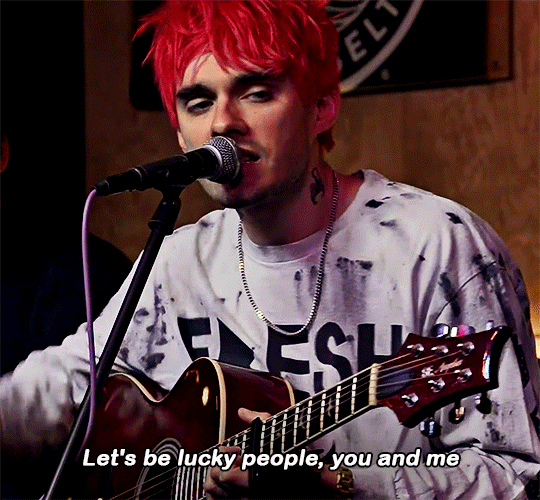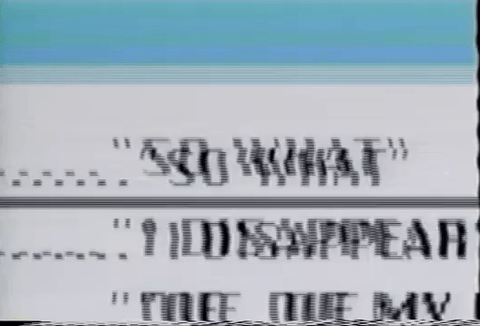#File Sharing
Explore tagged Tumblr posts
Text

#sharing is caring#file sharing#torrents#torrent#thepiratebay#pirate bay#internet#mutual aid#download#license violation#class war#copied files#music sharing#anti capitalism#antifascist#antiauthoritarian#anti imperialism#anti colonialism#anti cop#161#1312#eat the rich#eat the fucking rich#ausgov#politas#auspol#tasgov#taspol#australia#fuck neoliberals
32K notes
·
View notes
Text

90 notes
·
View notes
Text
Waterparks Local File Dump!!
https://drive.google.com/drive/folders/1k47RfxsHIAXYOpHlLHy9fy4XsypY-0fL

Dump this folder into your Spotify local files for a bunch of demos, covers, and acoustic versions of Waterparks songs that aren't on streaming!
Notable tracks include:
Hit Me With Your Toothbat
Gwen Stefani
I'm a Natural Blue Acoustic
End of the Water Alt Version
Why Can't I?
Turbulent Acoustic Clean Vesion from some show in the UK where Awsten makes a girl cry (Amazon Music Version)
and 54 others!
I plan on adding the video game cds and Turbulent/IMHSBALIDWDA single cds to this as well soon.
I also made spotify playlists in a curated order below!
PARX COVERS AND BONUSES
PARX INSTRUMENTALS
PARX ACOUSTIC VERSIONS
I also put together all of these and nearly all of the spotify discography (sorry im lowkey an EP hater) into a massive 7 hour playlist for listening in order here
I'm always looking for more fun stuff to add, so if you find anything cool, let me know and I might add it to the folder.
#waterparks#waterparks band#awsten knight#gwen stefani#ottoparks#piracy is sharing and sharing is caring#file sharing
13 notes
·
View notes
Text
so, i once saw a self-professed data/media hoarder on tumblr whose media storage server was publicly accessible. (it had movies and tv shows and such; unfortunately i can’t find any trace of it.) i think a setup like that would be best for preserving documentation of the palestinian genocide — those news stories/images/videos need to be saved before they're scrubbed, but they won't do much good sitting on individuals' hard drives.
so we need a centralized repository that can stay up for as long as possible. ideally, anyone would be able to view it, and any vetted person would be able to add to it (vetting to limit the risk of sabotage).
long shot, but are there any data-hoarders/internet archivists/etc. on here who would be interested in helping out with that effort, or taking it on themselves?
edited to add a little context: i could easily automate the scraping of posts from instagram, tiktok, and maybe twitter and tumblr*. it’s the hosting that i’d need help with.
*i don’t think anybody is sharing firsthand documentation on tumblr, but we’ve got a lot of copies of things that may have been deleted elsewhere.
#i would call this archival‚ not 'hoarding'‚ but i'm using that tag bc it seems to be the most widely-used.#data hoarding#file sharing#internet archival#digital archiving#digital archives#if i wanted to start my own setup i'd at *least* need to get an extra laptop‚ and probably some other equipment.#and i'm not sure i could keep it up indefinitely; i'm very bad at keeping things going.#so i'm a little wary of starting this on my own#txt#palestine
27 notes
·
View notes
Text
Starting to think I shouldn’t use my personal Google Drive to host all my piracy stuff I share (scans and the like) in case they nuke my entire account lol…. I could always set up an alt account, but does anyone have any recs for good file-sharing sites?
30 notes
·
View notes
Text
Hey, someone who has RapidGator Premium want to do me a solid?
2 notes
·
View notes
Photo

43 notes
·
View notes
Text
File sharing
Hey hey~ Just putting this out here that I have a few assorted 2.5D (mostly Blu-ray) files at my disposal, so do feel free to DM me and I'll send you stuff, if I have what you want!
4 notes
·
View notes
Text
This might sound a bit odd but does anyone use Gofile to share, upload, and download stuff?? Now by stuff I obviously mean things you torrent, rip, download, etc. This can be movies, tv shows, music, programs, documents, whatever the case may be. The reason I'm asking is because you can upload files regardless of how big it is and what have you. The only "drawback" is that if it's inactive for 10 consecutive days without downloads that the given file will get deleted. And that's only for the free accounts. You can see more about the different Account Choices here.
It seems pretty chill and legit and it's encrypted/secure so there's that. I definitely like that you can upload stuff that's of several GBs in size and think that's pretty cool. You also technically don't even need an account to upload stuff apparently, so there's that??
#gofile#file sharing#file share#sharing#programs#torrenting#torrents#music#pirating#free-to-use#f2u#free to use
5 notes
·
View notes
Text
because i’ve overcome some hardware issues i’m going to be taking down a lot of stuff from my google drive (which like... a bunch of those albums were uploaded as MP3′s and just not in a very storage friendly format). kenshi yonezu albums are staying up! and i’m gunna work on shaping up my discogs account so that if anybody really wanted, i could share albums when asked for specific stuff.
#though i sincerely doubt anyone will ask. but whatever heres the option#file sharing#piracy#data hoarding#music collection
13 notes
·
View notes
Text

#piracy#pirates#pirate#class war#mutual aid#sharing is caring#music sharing#sharing#please share#torrent#torrenting#161#1312#share#file sharing#ausgov#politas#auspol#tasgov#taspol#australia#fuck neoliberals#neoliberal capitalism#anthony albanese#albanese government#thepiratebay#pirate bay#anti capitalism#antifascist#antiauthoritarian
61 notes
·
View notes
Text

94 notes
·
View notes
Text
Seedr Made Torrenting Easy
I understand that you face challenges with internet usage, such as the cost of data and poor bandwidth. Torrenting, especially for larger files like games, movies, series, and software, can be frustrating in such situations. However, you have found a solution to overcome some of these challenges by using Seedr, a service that allows you to fetch torrents and provides good download speeds.
Seedr (https://www.seedr.cc/) is a service that allows you to download torrents without the need for torrent client software on your device. It offers a free service where you can paste a torrent or magnetic link, and Seedr handles the downloading process for you, doing the heavy lifting on their servers. This can be beneficial when you have limited bandwidth or want to offload the downloading process to a more reliable and faster connection.
It's great to hear that Seedr has been helpful for you, allowing you to download movies, software, and other files efficiently. Utilizing such services can be a convenient way to overcome challenges related to slow torrenting speeds and limited bandwidth.
Just remember to be mindful of the legality of the content you download and ensure that you comply with the terms and conditions of both Seedr and the specific websites or services you use for torrenting.
2 notes
·
View notes
Text
Holy shit, y'all!! Zippyshare goin' down! Calling it quits! 😢
2 notes
·
View notes
Text
Kids today will never know the struggle for the pursuit of perfection.

22K notes
·
View notes